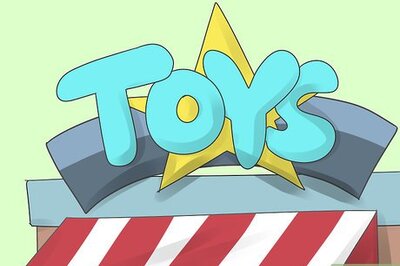
views
Students aiming to pursue engineering courses generally choose between two well-known options: the Bachelor of Engineering (BE) and the Bachelor of Technology (B.Tech). While the terms BE and B.Tech are often used interchangeably in the context of engineering education, there are significant differences between the two. For students aspiring to engineering careers, it’s essential to understand these differences.
Both the BE and B.Tech programmes span four years, consisting of eight semesters each. The main difference between the two lies in their focus: BE programmes are considered more knowledge-based, with a greater emphasis on theoretical learning. Its curriculum and syllabus tend to be more knowledge-driven and are not frequently updated. Some popular institutions offering a Bachelor of Engineering degree include NSIT, Anna University and BITS Pilani.
What Is B.Tech?
The Bachelor of Technology (B.Tech) programme places a stronger emphasis on practical knowledge rather than theory. It is viewed as an industry-oriented course, and the curriculum and syllabus are regularly updated to reflect the latest technological advancements. Engineering courses in B.Tech are offered by institutions such as IITs, NITs, and DTU. In simple terms, B.Tech is technology-focused, whereas BE is more knowledge-oriented. B.Tech students gain a deep understanding of the practical applications of science and technology, while BE students receive a broader theoretical grounding in engineering principles.
What Is BE?
Colleges and universities offer a wide range of professional courses, including arts, sciences, and engineering. In many colleges that offer disciplines outside engineering, BE is the engineering course available. In contrast, universities that focus solely on engineering tend to offer B.Tech programmes. However, it’s important to note that both BE and B.Tech degrees are regarded as equivalent in terms of their value. There is no inherent superiority between the two degrees, as they are considered on par with one another.
Which Course Offers a Better Salary?
Upon completing either a B.Tech or BE programme, candidates are typically hired based on their field of specialisation. Both degrees provide ample job opportunities, especially in the private sector. Graduates of either course can also seek employment in the public sector, private companies, or academic institutions. However, it’s crucial to understand that salary packages for BE and B.Tech graduates can vary depending on the institution from which they earned their degrees.
For instance, a B.Tech graduate from an IIT may get a higher salary. Some top-tier international BE and B.Tech graduates have been offered packages worth Rs 1 crore. Recently, a B.Tech student from IIIT Allahabad received an offer of Rs 1.2 crore from a New York-based firm, while six others secured packages as high as Rs 85 lakh.
Whether you choose BE or B. Tech depends on your academic preferences, career aspirations and interest in either the theoretical or practical aspects of engineering. Both degrees have their advantages and can lead to successful and rewarding careers in engineering.




















Comments
0 comment